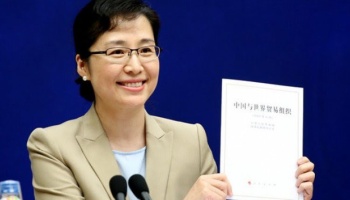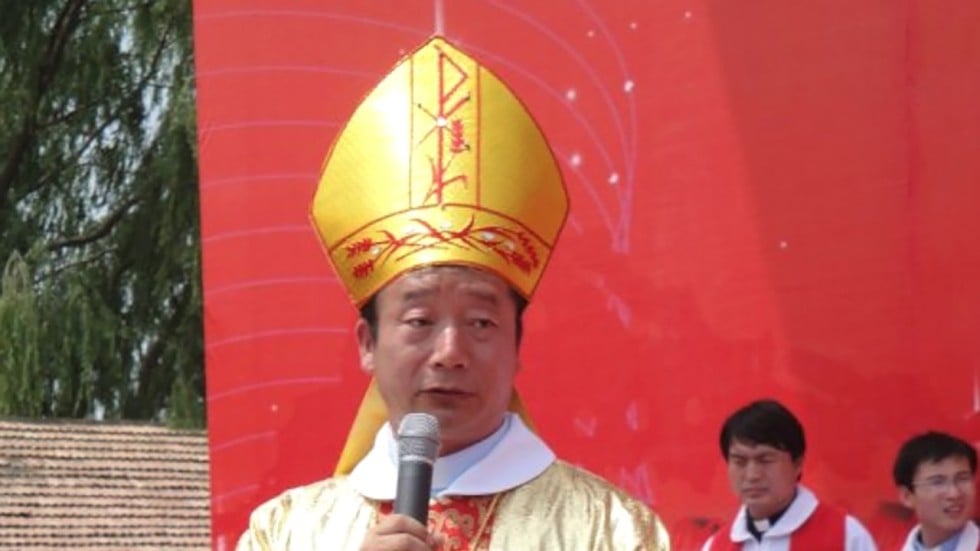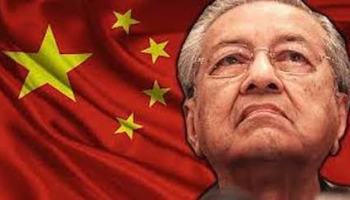 |
| Humans vs. Robots |
NO doubt, the FAANGs – Facebook, Apple, Amazon, Netflix and Google – are making the world a better place.
Still, they are being accused of being BAADD – big, anti-competitive, addictive and destructive to democracy.
Regulators fine them, politicians take them to task, and even their backers warn of their power to cause harm. Much of the techlash is undeserved. There’s fake news everywhere.
Nevertheless, there is justified fear that the tech titans will use their power to protect and extend their dominance, often to the detriment of consumers. Indeed, the big tech platforms do raise worries about fair competition in particular.
In Singapore, the merger of Grab and Uber brings on legitimate concerns in the taxi space. The tricky task for regulators is how to restrain them without unduly stifling innovation.
Today, trust busters have granted tech giants the benefit of the doubt in the fight for artificial intelligence (AI) and robotic space. At some point, who takes the moral and legal responsibility for their mechanical creations?
Like it or not, AI-enabled bots and machines are already here, in the form of drones, driverless cars and medical, educational and domestic robots. To muddle the picture still further, AI is now embodied in physical, sometimes humanoid, form in machines designed to engage directly with people.
Talk is rife about the outright banning of killer robots, which cross the moral red line (only humans are permitted to kill humans!). Already, there is a proposal to create a Robotics Commission in US and Europe to be responsible for moral and legal issues surrounding the use of robotics and AI enabled smart machines. High time too.
Robots and cobots
Armies of robots and collaborative robots (cobots) are spreading throughout factories and warehouses around the world, as the accelerating pace of automation transforms a widening range of industries.
And it is not just in advanced countries but in emerging economies as well where machines are a growing force, with global sales of industrial robots increasing by 18% to a record US$13.1bil in 2016.
These groups are benefiting from mounting demand for sophisticated machines that no longer just weld car bodies and lift heavy loads, but also perform complex functions from electronic component production to arranging chocolates neatly into boxes.
Another trend is the increasing range and type of robot, as they vary from flexible mechanical limbs to smart machines that can work alongside humans. Cobots are specifically designed to interact with people.
The robotics market has been growing strongly and will continue to grow. The spread of robots has piqued the debate over the suitability of humans versus robots as workers, with warning that more machines will take jobs. Consultants McKinsey found that about 30% of tasks in 60% of occupations could be automated.
Advanced automation is partly a response to a shortage of skilled manual labour, with robots often filling “dull, dirty, dangerous and delicate” roles that people simply do not want. Also, the falling cost of robotics systems, and breakthroughs in robotics technology – combining with the rising level of electronic communication between equipment and computers in factories, sometimes called the industrial Internet of Things.
Then there is the shift in some industries from producing a small variety of goods in large batches, to a greater mix of products in smaller batches. All these are basically driven by consumers. Although the largest user remains the car industry (mainly for welding and painting), the main driver of growth is the electronics and electrical sector, chiefly located in Asia and mainly for batteries, chips and display.
But robots are also entering other areas, such as logistics warehouses, chemicals and plastics factories and the food and beverage industries. In total, almost 300,000 units were sold worldwide last year, with three-quarters bound for just five countries: China, South Korea, Japan, US and Germany. Three in every 10 went to China alone.
Once the manual labour “workshop of the world”, it has been the largest buyer of industrial robots since 2013, and its purchases jumped by 27% in 2017. There were increased investments in many developing countries as well, such as Taiwan, Thailand, India and Mexico, as well as in Italy and France.
While there have been improvements in hardware capabilities, such as hydraulics and mobility, perhaps the most important developments are in sensors and software that are making robots more sensitive, flexible, precise and autonomous. The software side of industrial robotics is becoming more and more important.
However, despite the growth, robots still have many limitations when it comes to dexterity, judgment and the ability to improvise. Today, machines are beginning to learn new tasks from humans by imitation. This has opened up big possibilities, especially for cobots, which are smaller, lighter, more flexible and mobile. And, even more critically cheaper, making it more affordable for small and medium-sized enterprises to invest. While usually slower, they have greater adaptability, because they can be assigned to different tasks.
US dominance
True, US roads, airports, seaports and schools are on the slide. But US retains dominance in the most sophisticated fields – defence, elite universities and technology. Sure, US ceded the top spot to China in exports in 2007, in manufacturing in 2011, and absolute GDP by 2030. But Silicon Valley is still where the best ideas, smartest money and the most savvy entrepreneurs reside.
But China is catching up fast: its BAT (Baidu, Alibaba and Tencent) are in the same league as the FAANGs and new stars are coming on fast (Didi Chuxing, Ant Financial and Lufax). China’s e-commerce sales are 2x US’ and China remits 11x more money by mobile phones than US (still scribbling cheques). China plans to lead globally in AI by 2030.
Its VC industry is booming – the entrepreneurial work-ethic in Beijing, Hangzhou and Shenzhen are a sight for sore eyes. Despite the huge progress, China remains far behind. Studies show that China’s tech industry is only about 42% as powerful as US (only 15% in 2012).
But Chinese tech has weak spots: (i) its total market value is only 32% of US; (ii) has two to three huge companies and lots of small ones; (iii) China is puny in semiconductors and business-facing software; (iv) its tech products has not as yet permeated the industrial economy; (v) Chinese non-techs are primitive – only 2.6% as digitalised as US; (vi) Chinese tech investment budget is only 30% as big as US, with foreign sales 18% of what US makes.
However, the gap narrows in the more dynamic parts of tech industry: (a) in e-commerce and internet, Chinese firms are 53% the size of US (in market value); (b) China’s unicorns are now worth 69% of US; (c) its VC activity, 85% of US in 2016; and (d) in “breakthrough” AI innovations, China’s population of AI experts is only 6% the size of US – with their best minds still working in large US techs; while cited AI papers by Chinese scientists are at 89% of US.
At the present pace, China will need a further 10-15 years to catch up. Viewed from China, US giant techs remain as “comfy monopolists”, while Chinese techs are plain “hungry”. Beijing’s blueprint: to create a US$150bil AI-industry by 2030 underlines its desire to beat US.
China’s advantage: sheer numbers of people, data, talent and superior lines of codes being written! At 730 million, China’s online population alone is more than 2x US size, and more tech-savvy. While US faces cut-backs in research money, China is committing ample money and also political capital into its relentless drive to reign supreme in AI.
However, the quality of fundamental research in China remains a problem. It lags behind EU in terms of the number of AI papers in the top 5% of most cited.
Where’s EU?
Few in US and China seriously regard Europe becoming a force in machine learning – the area AI has made the most progress in recent years. The process involves feeding reams of data through algorithms as AI learns to interpret other data.
Europe simply lacks scale; unlike US and China where tech giants have a surfeit of the most vital resource for AI – data; also attracted the best talent & boost the biggest computer clouds. Here, Europe is way behind.
Since US and China have centralised data systems (controlled by very few large firms), Europe can create a more decentralised option. China is expected to hold 30% of world data by 2030; US with just as much. Europe has data too, but needs to pool its diversified resources in research and data. But, Europe has institutional inertia, with much of its funding centered in academic institutions – not the best place for it. To be relevant, Europe has to do much more. Still, no match for US and China.
Silicon Valley: where next?
The stretch of land in the US Bay Area running from San Jose to San Francisco is home to three (Apple, Facebook, Google) of the world’s five most valuable tech giants. All claim Silicon Valley (SV) as their birthplace and home, as do trailblazers such as Airbnb, Tesla and Uber.
The Bay Area has the 19th largest economy in the world, ranking above Switzerland and Saudi Arabia. SV has become a byword for innovation and ingenuity. It has also been at the centre of several cycles of Schumpeterian destruction and regeneration, in silicon chips, personal computers, software and internet services. Its combination of engineering expertise, thriving business networks, deep pools of capital, strong universities and a risk-taking culture have made SV almost impossible to clone.
There is no credible rival for its position as the world’s pre-eminent innovation hub. But there are signs that SV’s influence is peaking. Yes, something is changing. According to a recent survey, 46% of residents surveyed plans to leave the Bay Area in the next few years, up from 34% in 2016. So, many startups are branching out: “Off Silicon Valleying.”
In 2013, SV investors put half their money into startups outside the Bay Area; now it is closer to two-thirds. Reasons: SV has just become too expensive; among the world’s costliest. Young startups pay at least 4x more to operate here. New technologies, from quantum computing to synthetic biology, make lower margins than internet services. There is also the nastier features of Bay-Area life: clogged traffic, discarded syringes and shocking inequality. The Miami-Fort Lauderdale area is now ranked first for startup activity, based on the density of startups and new entrepreneurs.
There are others: Los Angeles (which has a vibrant tech scene), Phoenix and Pittsburgh (have become hubs for autonomous vehicles); New York (for media startups); London (for fintech); Shenzhen (for hardware). None of these places can match the SV on its own; between them, they point to a world in which innovation can be better distributed. The problem is that the wider playing field for innovation is being levelled down, away from the dominant effects of tech giants.
Second, the increasingly unfriendly policies in the West. Rising anti-immigrant sentiment and tighter visa regimes have economy-wide effects: foreign entrepreneurs create around 25% of new companies in America. Unfortunately, SV’s peak looks more like a warning that innovation everywhere is becoming harder. SV is fast becoming more an idea instead of a place. Wall Street went through a similar transformation; its name becoming shorthand for a whole industry.
As tech firms set their sights on disrupting old-fashioned industries, like healthcare and logistics, they may find that it helps to be based in cities that claim deep expertise in these areas – and where garages housing startups are just the stuff of museums and memory.
What then are we to do
The time has come to love robots. Asians do. But not in the West where robots receive terrible press. They worry about robots killing jobs. In Asia, robots are today commonly used in Japan, South Korea, Taiwan and China. ADB’s June 2018 report analysing 12 developing Asian economies in 2005-15 concluded that rising demand had more than compensated for jobs lost to automation. The adoption of new technologies, such as modern machine tools and computer systems in factories and offices, had stimulated higher productivity and economic growth. That transformation, it estimated, had created 124 million new jobs, compared with the 101 million jobs lost to technology.
It is worth noting that there are two types of robots: those that do the work of humans and those that enhance their performance. We hear too much about the first type and too little of the second. Sure, their creations help humans deal with the “3 Ds”: dirty, dull and dangerous tasks. But countries that have the highest adoption of robots also have the lowest unemployment rates. Also, they help address the acute demographic squeeze as societies rapidly age. Some Asian societies prefer robots to immigrants to supplement their shrinking workforces. Robots are increasingly moving out of the factory into homes and hospitals, where they will need new capabilities.
I believe that technologies are always a net job creator over the long run, but, as Keynes put it, in the long run we are all dead. As these technologies make their way into every industry, they will benefit those at the very top with the skills and education to leverage the productivity advantages that AI affords.
Medical specialists, for example, could dramatically increase their income by using AI’s productive analytics to better diagnose and treat patients. But workers doing highly repetitive tasks that can easily be done by machines will not fare so well. This has massive consequences.
A McKinsey report shows that, while digitalisation has the potential to boost productivity and growth, it may also hold back demand if it compresses labour’s share of income and increases inequality. We badly need a kind of digital New Deal. For as many jobs as will be replaced by automation, there are other areas – customer service, big data analysis, etc. – that desperately need talent. Companies that pledge to retain workers and retrain them to develop skills to get stable jobs, should be offered tax incentives to do so. And spend the cash on factory upgrades, technical improvements, and re-training costs.
There are plenty of such projects that workers could be deployed now – including helping to expand rural broadband. It is a way for companies and government to turn a potential difficult employment situation into an opportunity by using this disruption to prepare & train a 21st-century digital workforce, and build public infrastructure to support it.
Credit: What are we to do? by Lin See-yan - Former banker, Harvard educated economist and British Chartered Scientist, Tan Sri Lin See-Yan is the author of The Global Economy in Turbulent Times (Wiley, 2015) & Turbulence in Trying Times (Pearson, 2017).





















